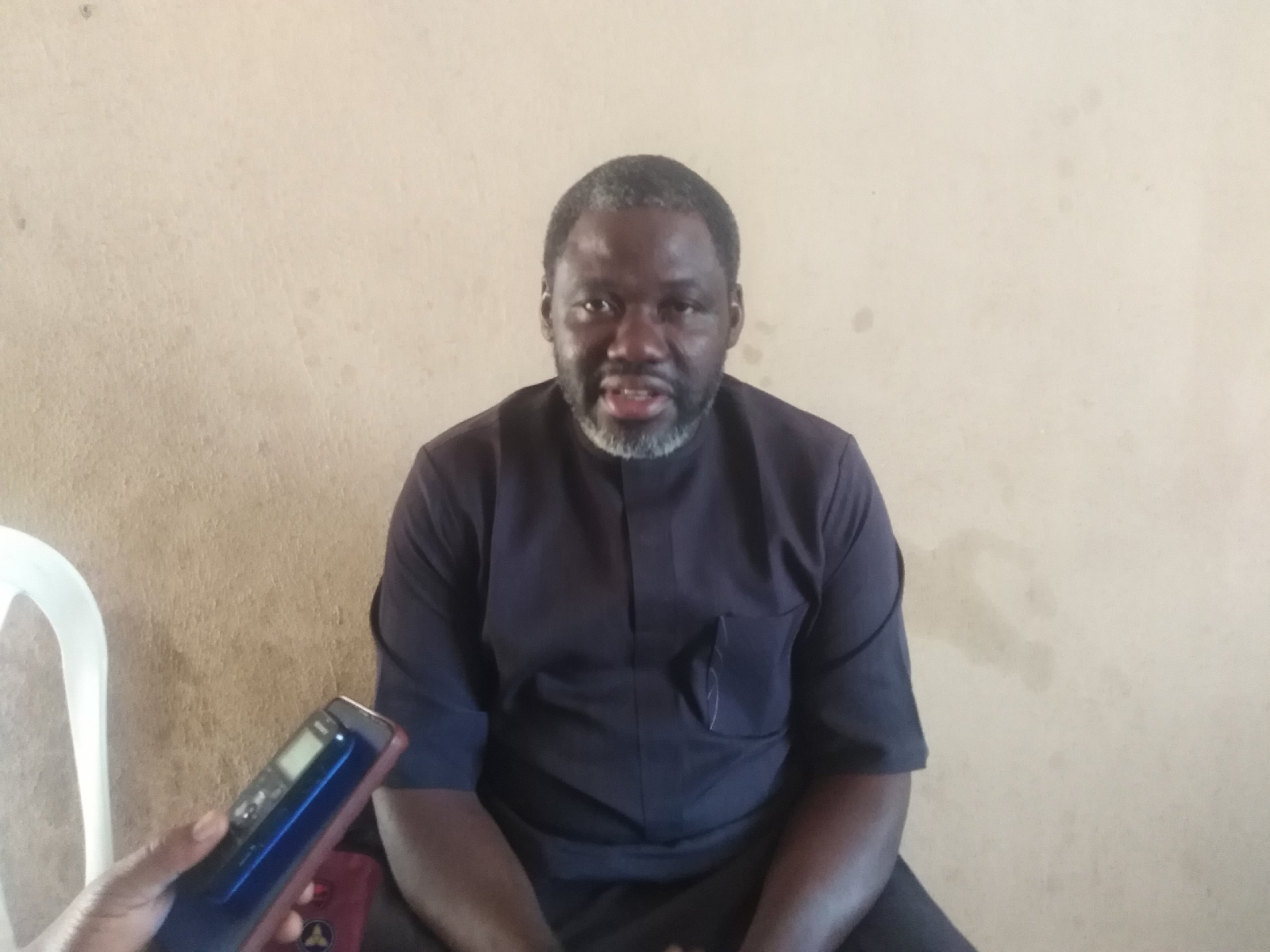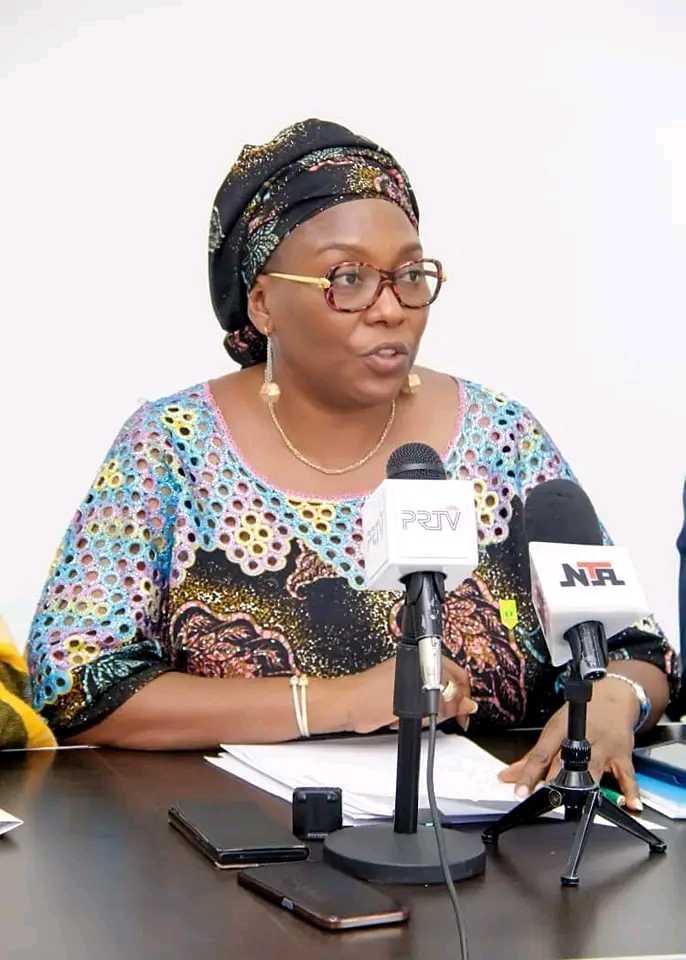Global Partnership Of World Powers As a Viable Option For Resolving Insidious Security Crisis in Nigeria
By Yakubu Busari, Jos.
Da Jonathan Sunday Akuns Galadiman Daffo is the author
He's a PDP chieftain on the Plateau. On Tuesday, 27th April 2021 responded that a British envoy, the Minister for Africa, James Duddridge announced in Abuja that the ongoing security problems in Nigeria were “ massively complex and no partnership is going to resolve such multiplicity of problems”.
Duddridge made the statement while responding to questions from journalists in the course of a courtesy visit to Nigerian Minister of Foreign Affairs, Geoffrey Onyeama.
In furtherance, the envoy linked security issues in Nigeria to being “… not just about intelligence and hard security and military, [but to issues] about societies, about humanitarian support [and] about education …” as one of the key reasons why a partnership will not work in resolving the problems.
The statement of the envoy is profound and is arguably a smokescreen.
The advent of British ‘sphere of influence’ in Africa for trade interests and territorial rights identified five (5) uniquely different “societies” that eventually became Nigeria under British suzerainty. The identified pristine societies are as follows: -
(i)Lagos Colony (ii) Oil Rivers Territories (iii) Niger Territories
(iv) Sokoto Kingdom (v) Borno Kingdom
Each of the aforesaid societies were unique, contiguous and independent of each other but in a series of administrative cum commercial maneuvers, Britain unified the societies into a political conglomerate that is presently identified as Nigeria. This was achieved through three stages of amalgamation as follows: -
i. Lagos Colony and Oil Rivers were first amalgamated as the Protectorate of Southern Nigeria (PSN).
ii. Secondly, Niger Territories consisting of three hundred (300) ‘Pagan Tribes’ were amalgamated with Sokoto and Borno Kingdoms as the Protectorate of Northern Nigeria (PNN).
iii. The third and final level of amalgamation on 1st January 1914 was that of Southern and Northern Protectorates into the union currently identified as the Federal Republic of Nigeria (FRN).
The pristine five societies were uniquely different in autochthony, ethnography, demography, economy and religion. The fortuitous amalgamation of the erstwhile five societies into Nigeria based on mutually exclusive treaties with each entity maybe the reason why the envoy may have foreclosed ‘partnership’ as a viable option for resolving the ongoing security problems in Nigeria.
The Niger Territories were identified by the British as being inhabited by more than 300 Pagan Tribes consisting of diverse tribes and languages as seen nowhere else under the sun. As at 1st January 1900 when the PNN was inaugurated by Sir Frederick Lugard, Britain had already signed treaties with majority of the more than 300 pagan tribes, 2 treaties with Sokoto Kingdom in 1885 and 1890 and no treaty but International Agreements with Borno Kingdom.
The treaties cum agreements were mutually exclusive to each entity and were peculiar to the attributes of such entity; yet the three societies were unilaterally amalgamated into the PNN by British fiat. In a similar vein, two societies of Lagos Colony and Lower Niger Coasts were amalgamated into the PSN by the whims of British hegemony. In furtherance, the PNN and PSN were amalgamated into a union called Nigeria on 1st January 1914 by British suzerainty devoid of any deriving principles of initial conditions.
Interestingly, the three societies under PNN grabbled with different security challenges in medieval times that were resolved by British colonial officials.
The Pagan Tribes or Niger Territories struggled with raids and inter-tribal wars for slaves; while slave raids and occasional skirmishes emanated largely from neighboring “Mahomedan” kingdoms, the inter-tribal wars were amongst the tribes for sundry reasons including slavery. In spite of its fame, Borno kingdom suffered from incessant warfare and religious insurgency, especially insurgencies led by Mallam Jibrella, Rabeh and Fadr-el Allah amongst others to this day. Sokoto kingdom was largely peaceful except for a case of a religious insurgency led by an outlaw from a French territory, which was quelled and the leader of the insurgency captured, tried and executed in 1906. In addition to raids, inter-tribal wars and religious insurgences, the colonial officials suffered fatal attacks from natives of both societies.
In light of the foregoing, the comments of the British envoy James Duddridge, hit at the root of the founding of the Nigerian union; thus, there was no basis for the three successive amalgamations of the five pristine societies into a union called Nigeria. The aforesaid five societies could have been proclaimed as five sovereign countries without posing any threat to British sphere of influence.
In contemporary national discourse, the erstwhile five societies have vehemently and virulently clamored for self-determination along their pristine autochthony; the Niger Territories for Middle Belt, Oil Rivers Territories for Biafra, Lagos Colony for Oduduwa, Sokoto cum Borno for Arewa. The intractable security problems in Nigeria have brought to the fore the erstwhile lines of autochthony of the five societies and accentuated the clamor for self-determination; an amicable resolution requires a partnership of the world powers to provide “humanitarian support” in this regard.
Precedents of fruitful partnerships exists to spur the need for a similar exercise for Nigeria to resolve the ongoing security problems. The Berlin Conference of November 1884 to February 1885 was a partnership of 14 world powers to resolve rivalry between Britain, France and Germany about wielding influence in Africa for trade interests cum territorial rights. The Conference paved the way for Anglo-German and Anglo-French agreements of 1893 and 1898 respectively, thereby resolving a twelve-year feud amongst the trio.
The quintessential team of Allied Forces of the second world war (WWII) was roused by a partnership effort that defeated German forces of Hitler in their zeal to impose ethnic hegemony in global affairs. In furtherance, a US government sponsored Marshall Plan was a resultant policy plank that rebuilt and restored war-torn Europe to prosperity and the concomitant Bretton Woods institutional architecture that was birthed to promote international economic cooperation in order to preserve global stability as well as the founding of the United Nations (UN) for international peace and security.
In general, the statement of the British envoy about the futility of a partnership for resolving the ongoing security problems in Nigeria is tacitly misguiding and surreptitiously deceptive; now is the auspicious need for “humanitarian support” for a partnership of world powers akin to those cited to resolve the insidious security problems of Nigeria for the good of Nigeria, Sahel Region/Equatorial Africa cum mankind.
Obviously, advancements in science and technology in different fields of human endeavour have vitiated reliance on the need to revisit the missing cryptic initial conditions for amalgamation which Britain failed to put up ab initio. It will be a tragedy for a 21st century world powers to allow Nigeria to go the path of defunct Yugoslavia/Czechoslovakia rather than that of the USA/China/India as successful plural societies. Hence, the time to convene the much awaited partnership of world powers to salvage Nigeria is now, and if not Britain, who will champion the convening of such partnership?V2023S3



Comments
Post a Comment